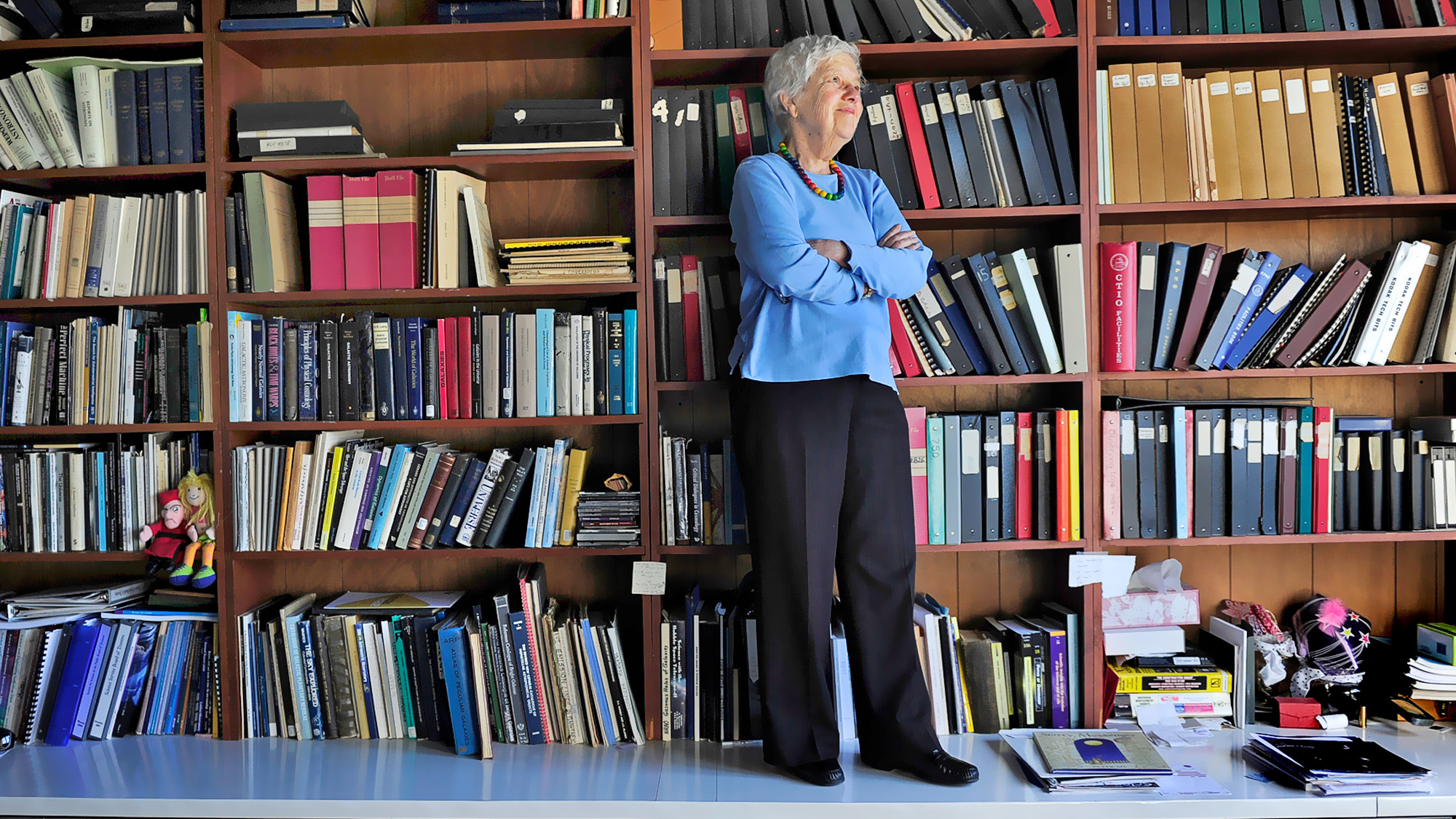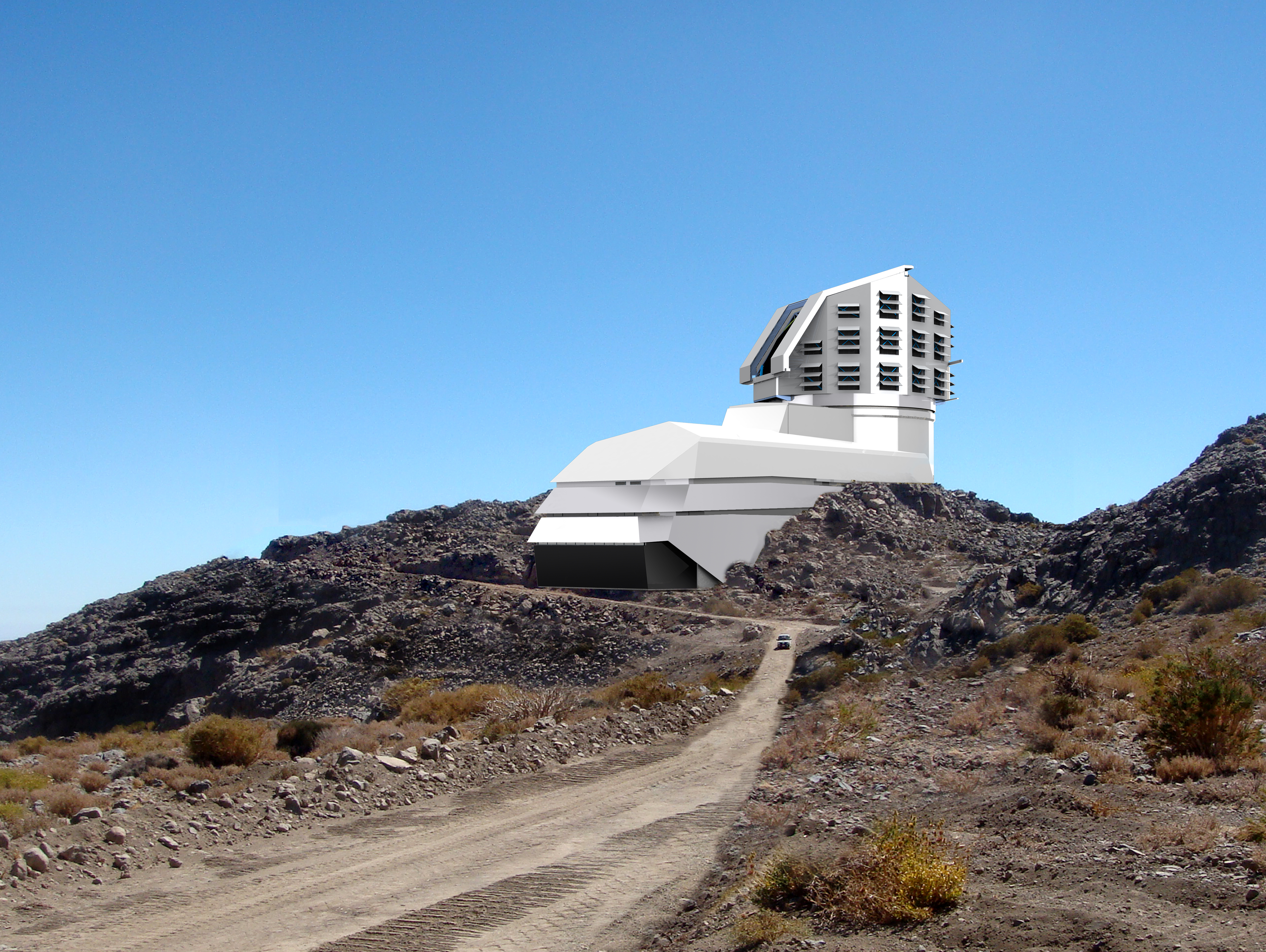Giant Telescope in Chile Could Be Named for Pioneering Astronomer Vera Rubin

Astronomer Vera Rubin — best known for her pioneering research on dark matter — will lend her name to a new telescope if a bipartisan bill passes Congress and musters presidential approval.
That bill, dubbed H.R. 3196, was introduced yesterday and would designate the Large Synoptic Survey Telescope as the "Vera Rubin Survey Telescope." Eddie Bernice Johnson (D-Texas), chair of the House Science Committee, and congresswoman Jenniffer González-Colón (R-Puerto Rico) co-introduced the bill.
The bill's text notes some of the challenges Rubin — who died in 2016 at age 88 — faced as a female astronomer in a male-dominated profession.
Related: Women in Space: A Gallery of Firsts
"Dr. Rubin faced barriers throughout her career because of her gender," the bill states. "For instance, one of the world's leading astronomy facilities at the time, the Palomar Observatory, did not permit women. Dr. Rubin persisted and was finally allowed to observe at Palomar in 1965, the first woman officially allowed to do so."
Her astronomical work later led to discoveries about dark matter, a cosmic substance so difficult to observe that it is still puzzling astronomers nearly 50 years after her study. Dark matter and dark energy together appear to make up most of the universe, but they cannot be seen directly; no one knows exactly what makes up dark matter.
"In 1970, Dr. Rubin published measurements of the Andromeda galaxy showing stars and gas orbiting the galaxy's center too fast to be explained by the amount of mass [there]," according to the bill.
Breaking space news, the latest updates on rocket launches, skywatching events and more!
"In the years that followed, Dr. Rubin and her collaborators used their observations, in conjunction with the work by earlier astronomers on the rotation of stars in spiral galaxies, to provide some of the best evidence for the existence of dark matter. This work contributed to a major shift in the conventional view of the universe, from one dominated by ordinary matter such as what produces the light of stars, to one dominated by dark matter."
In a House of Representatives statement released about the bill, Rubin's family members said they were happy the legislature is considering the renaming. "We believe that this is a great way to honor our mother's achievements in astronomy and her work for equal rights for women in science," the statement attributes to three of her four children — Allan, David and Karl. All of Rubin's children became "Ph.D offspring," according to a 2003 profile in Nature: two geologists, an astronomer and a mathematician.
The Large Synoptic Survey Telescope is a wide-field instrument designed to photograph the entire sky above it every few nights. The telescope is under construction in Chile and expected to come online in the 2020s, performing work such as scanning for dangerous near-Earth asteroids and looking for possible interstellar objects entering our solar system. (The first known interstellar object, 'Oumuamua, zoomed through our neighborhood in 2017.)
Fittingly, the telescope's observations could also help scientists solve some of the mysteries of dark matter and dark energy. Because the LSST will look at billions of galaxies over time, scientists hope its images will help them see how the two forces slowly shape the universe around us.
- 4 Dark Matter Searches to Watch in 2019
- The Hunt for Dangerous Asteroids: Here's How Scientists Do It
- 'We Don't Planet' Episode 4: What's the Evidence for Dark Matter?
Follow Elizabeth Howell on Twitter @howellspace. Follow us on Twitter @Spacedotcom and on Facebook.

Elizabeth Howell (she/her), Ph.D., was a staff writer in the spaceflight channel between 2022 and 2024 specializing in Canadian space news. She was contributing writer for Space.com for 10 years from 2012 to 2024. Elizabeth's reporting includes multiple exclusives with the White House, leading world coverage about a lost-and-found space tomato on the International Space Station, witnessing five human spaceflight launches on two continents, flying parabolic, working inside a spacesuit, and participating in a simulated Mars mission. Her latest book, "Why Am I Taller?" (ECW Press, 2022) is co-written with astronaut Dave Williams.

